After the merger, Gia Lai is the province with the second largest natural area in the country with 21,577 km2 . The province has many potentials, advantages and room to develop the agricultural sector, especially in cultivation and animal husbandry.
Specifically, the western region of Gia Lai has high terrain, dominant red basalt soil (over 500,000 hectares), rich in humus, with high water and nutrient retention capacity, especially suitable for long-term industrial crops such as: coffee, rubber, pepper, macadamia and citrus fruit trees, durian...
In contrast, the eastern part of the province has a diverse topographic structure from coastal plains, low hills to medium-high mountains, with the main soil groups being alluvial soil, sandy soil, and gray soil... suitable for rice, vegetables, beans, watermelons and some medicinal plants. This ecological diversity creates a rich natural foundation, bringing great potential to organize crop production according to specific ecological zones.
In recent years, with the attention and investment from programs and projects, the province's agricultural sector has made remarkable progress; many models of production linkages associated with agricultural product consumption have been formed. Thereby, helping to improve productivity, product quality, stabilize output, increase income for farmers; at the same time, creating a strong link between people, cooperatives and businesses.
However, most of the current linkage chains are still fragmented, mainly proposed and implemented by enterprises and cooperatives, lacking long-term support mechanisms, and weak export market connections.
Typically, Gia Lai durian has been affirming its brand by initially forming concentrated specialized growing areas, which are granted growing area codes and packing facility codes for export. Currently, there are 11 enterprises, 16 cooperatives and 3 farmers' associations investing in growing and linking durian production with an area of nearly 2,900 hectares... However, these chains are still relatively fragmented and lack sustainability due to the lack of legal binding between the parties.
Thanks to the success in developing the Musang King durian product and being honored with the "Asia- Pacific Sustainable Development Brand 2024" award, durian products of Sam Phat Ialy Farmstay (Ia Ly commune) have been sought by many export companies wishing to sign large-scale purchase contracts.
However, the annual durian output of the unit only meets about 50-70 tons. Meanwhile, many households in the surrounding area also grow durian but cannot find a common voice to join together and produce according to standards to meet the needs of the export market.
Mr. Nguyen Chat Sam - Owner of Sam Phat Ialy Farmstay - said: The production thinking of people today has changed a lot, they know how to apply scientific and technical advances in production to improve productivity and product quality. In particular, people have joined cooperatives to link with production enterprises according to standards to meet market needs, especially the export market.
However, these chains lack legal constraints at all stages, especially responsibility for the quality of the products they produce, leading to easy disruption of the supply chain.
Mr. Nguyen Van Thuong - Vice Chairman of the People's Committee of Bo Ngoong Commune - said: After the merger, the commune has 15,145 hectares of agricultural land (accounting for 88% of the total natural land area) with natural conditions and fertile land very suitable for developing key crops such as: coffee, rubber, pepper, fruit trees, rice...
Recently, many households in the area have also joined the Ia Ring Agricultural Production, Business and Service Cooperative to cooperate with Vinh Hiep Company Limited to cultivate coffee according to 4C standards. Most members and people participating in the chain have gradually shifted from inorganic to organic production, so the gardens have developed quite sustainably, providing stable productivity and income.
According to Mr. Tu Tan Loc - Director of Kong Chro Forestry One Member Co., Ltd. (Kong Chro commune), the merger of the province is a great opportunity for the unit to access investment capital from joint ventures, associations, and cooperation with organizations and individuals (from the old Binh Dinh province) with economic potential and experience in developing production forests.
In particular, attracting potential investors to build large-scale wood processing factories associated with raw material areas for export. Thereby, contributing to sustainable forestry development, increasing forest cover to adapt to climate change in the 2021-2030 period and increasing people's income.
Mr. Thai Danh Han - Party Secretary of An Tuong commune, said: The commune has many potentials and advantages in agricultural development with key crops such as rice, citrus fruit trees, planted forests, etc. Farmers in the area have also gradually applied scientific and technical advances in cultivation and production according to standards to meet the increasing demands of the market.
Talking to reporters, Mr. Cao Thanh Thuong - Director of the Department of Agriculture and Environment - said: To promote the potential and build the province's agricultural sector in a sustainable, modern direction, bringing high added value, the sector will continue to proactively coordinate, promote and synchronously deploy many solutions to raise awareness for related organizations and individuals.
In particular, priority is given to coordinating and promoting propaganda and mobilization work, raising awareness of producers about the benefits of participating in production linkages; guiding the process of establishing and monitoring codes for growing areas and agricultural product packaging facilities. Training, transferring technical advances, production processes from seed production, harvesting methods, processing, preservation, and transportation associated with specific products to meet the ordering requirements of businesses.
In addition, develop a plan for crop production and conversion of ineffective crops associated with the construction and development of concentrated commodity production areas; production according to clean agricultural and organic agricultural processes and standards; build and develop product value chains associated with the development of preliminary processing and preservation facilities and processing factories to serve the domestic and export markets.
“In particular, the industry also strengthens and promotes inspection and guidance to improve the effectiveness of production organization forms, build and develop sustainable links in production associated with the consumption of agricultural products with export strengths of localities.
In particular, focusing on supporting and connecting sustainable links between farming households, cooperatives, and cooperatives that are granted growing area codes with enterprises and packaging facilities that are granted codes in the province; at the same time, checking and supervising the management and use of growing area codes and packaging facility codes that have been granted; promptly detecting and strictly handling cases of impersonation, fraud, and improper use of codes.
The Department also focuses on organizing and implementing well the work of investigating, estimating, forecasting, and assessing the situation of common pests and diseases on the province's key crops with export advantages (coffee, pepper, durian, passion fruit, banana, chili, sweet potato, etc.) and developing effective prevention measures; regularly reviewing and providing guidance on the list of pesticides and chemicals used in production and post-harvest of the province's key commodity crops; promptly updating and disseminating the list of banned active ingredients in import markets.
Along with that, connecting purchasing, distributing, consuming enterprises and farmers in consuming output products through cooperation contracts between enterprises and new-style cooperatives to build a sustainable agricultural value chain. On the other hand, promoting attracting enterprises and economic sectors to invest in agriculture and rural areas according to Decree No. 57/2018/ND-CP on policies and mechanisms to encourage enterprises to invest in agriculture and rural areas.
Source: https://baogialai.com.vn/lien-ket-vung-sau-sap-nhap-nen-tang-cho-nong-nghiep-ben-vung-post561662.html



![[Photo] Cutting hills to make way for people to travel on route 14E that suffered landslides](https://vphoto.vietnam.vn/thumb/1200x675/vietnam/resource/IMAGE/2025/11/08/1762599969318_ndo_br_thiet-ke-chua-co-ten-2025-11-08t154639923-png.webp)




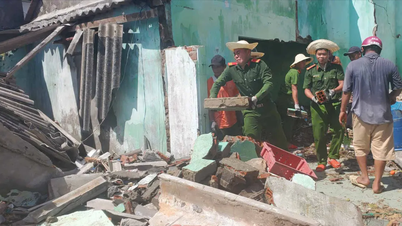

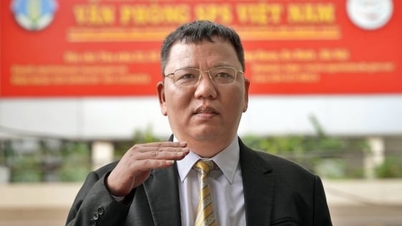






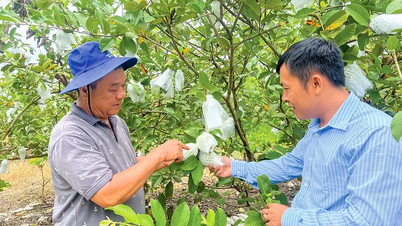









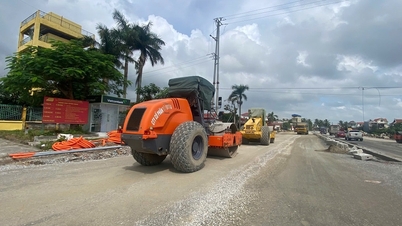










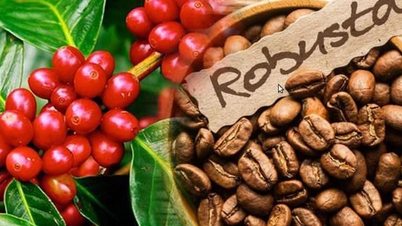
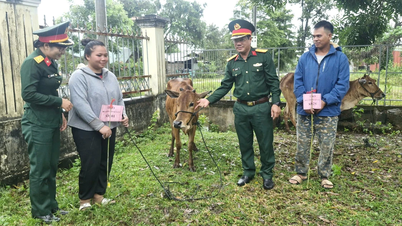








![[Video] Hue Monuments reopen to welcome visitors](https://vphoto.vietnam.vn/thumb/402x226/vietnam/resource/IMAGE/2025/11/05/1762301089171_dung01-05-43-09still013-jpg.webp)
















































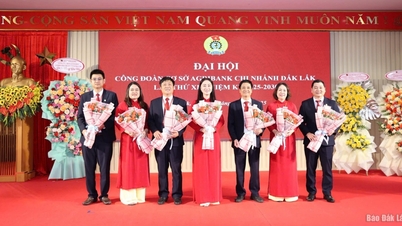
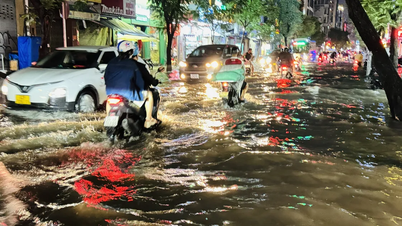
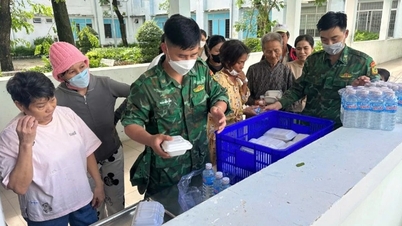
















Comment (0)